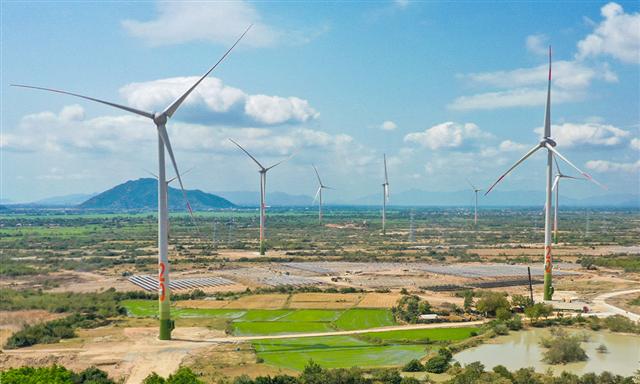Resource based economy poses challenges for export firms
Resource based economy poses challenges for export firms
The booming resource sector in Laos is posing challenges for other export oriented firms operating in the country, according to a senior official from the Ministry of Planning and Investment
“Dutch disease is real and is now shaping the Lao economy” Planning Department Deputy Director General, Ms Phonevanh Outhavong said while making a presentation on macroeconomic development in Laos to a group of development partners in Vientiane this week.
“The impact is related to the effects of government spending and the prospects for the private sector,” Ms Phonevanh said.
Dutch disease is a colloquial name for an economic phenomenon where revenue from natural resources or the inflow of foreign aid makes a nation's currency stronger compared to other nations, resulting in exports of non-resource commodities becoming more expensive for overseas purchasers.
The term “Dutch disease” originates from a crisis in the Netherlands in the 1960s that resulted from discoveries of vast natural gas deposits in the North Sea. The newfound wealth caused the Dutch guilder to rise, making exports of all non-oil products less competitive on the world market.
In line with this trend, the value of the Lao kip has strengthened over the past five years from 10,000 kip per US dollar to only around 8,000 kip per US dollar at present. The increasing value of the Lao kip is posing challenges for the tourism and garment industry, which are major foreign exchange earners.
At present, a number of countries view Laos as one of the growing consuming markets in the region, and among the best selling imported goods are now cars and electronic equipment.
Over the past five years, the Lao economy has been growing at least 7.5 percent annually. One of the main driving forces of the economy is the export of mining products such as gold and copper. The country plans to secure at least eight percent economic growth over next few years, and mineral extraction will play a large role in maintaining that.
Ms Phonevanh said that the government has acknowledged the export challenges faced by non-resource sectors and laid down a policy to address the negative impacts of the appreciating value of the Lao kip.
One of the measures is to create better investment climate for the private sector to do business in the country, she said. Laos has a policy to promote investment in agriculture and the food processing industry.
The government has amended the investment promotion law, aiming to provide a number of investment incentives including tax breaks and reductions in land concession fees, particularly in remote areas, in an effort to develop the countryside.
The government has also amended a number of laws and regulations to meet the requirements of the WTO, so as it can join the global trade body at the end of this year.
The accession of Laos to the WTO will not only become a milestone for Laos in terms of integrating into the world community, but also help the country to attract more foreign investment.
vientiane times






.jpg)










